Your Fraud Lawyer
“Wrongful or criminal deception intended to result in financial or personal gain.”
Can you go to jail for fraud?
Any good fraud lawyer will tell you that fraud convictions bring with them the possibility of a prison sentence. Though sentences differ widely, a misdemeanor conviction can lead to up to a year in a local jail, while a felony conviction can lead to multiple years in prison. Federal charges can lead to 10 years or more in federal prison.
Fraud takes place when a person deliberately practices deception in order to gain something unlawfully or unfairly. In most states, the act of fraud can be classified as either a civil or a criminal wrong. While fraud is most commonly committed to obtain benefits of value, it sometimes occurs solely for the purpose of deceiving another person or entity. For instance, if a person makes false statements, it may be considered fraud, depending on the circumstances. To explore this concept, consider the following fraud definition.
No matter what type of fraud, you need a fraud lawyer!
Additional Ressources
Some of the most commonly committed types of fraud include:
Check Fraud
Internet sales
Website misdirection
Charities fraud
Work-from-home scams
Pyramid schemes
Identity theft
Credit card fraud
Fraud can violate civil law (i.e., a fraud victim may sue the fraud perpetrator to avoid the fraud or recover monetary compensation), a criminal law (i.e., a fraud perpetrator may be prosecuted and imprisoned by governmental authorities), or it may cause no loss of money, property or legal right but still be an element …
In law, fraud is intentional deception to secure unfair or unlawful gain, or to deprive a victim of a legal right. Fraud can violate civil law (i.e., a fraud victim may sue the fraud perpetrator to avoid the fraud or recover monetary compensation), a criminal law (i.e., a fraud perpetrator may be prosecuted and imprisoned by governmental authorities), or it may cause no loss of money, property or legal right but still be an element of another civil or criminal wrong.[1] The purpose of fraud may be monetary gain or other benefits, for example by obtaining a passport, travel document, or driver’s license, or mortgage fraud, where the perpetrator may attempt to qualify for a mortgage by way of false statements.[2]
Justice Law Partners Inc and Justin Rodriguez specialize in a wide range of legal matters and are particularly active in the cities listed below.




